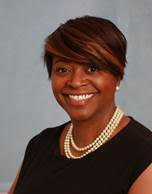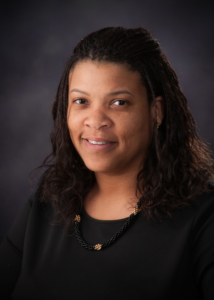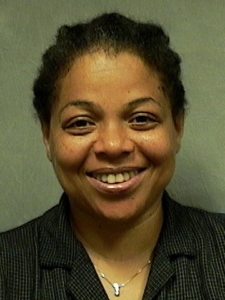 When Nikki Darden was first starting her career, she took care to conform to cultural norms. “I would look at those who were successful and think I had to dress like them or present myself the same way,” she says. “But I know now that the more comfortable you are with yourself, the more you drive value for your employer with the qualities that differentiate you.
When Nikki Darden was first starting her career, she took care to conform to cultural norms. “I would look at those who were successful and think I had to dress like them or present myself the same way,” she says. “But I know now that the more comfortable you are with yourself, the more you drive value for your employer with the qualities that differentiate you.
“I’m a Southerner; I’m a woman; and I’m a minority. I used to water it down, but now I embrace those traits that make me who I am.”
Finding a Career Path That Resonated
Darden has spent her entire career in financial services, although not as a banker. She started with NationsBank in Charlotte (now Bank of America) as a marketing analyst and then moved into the team that was focused on what was then called “PC banking.” As the predecessor to internet banking, customers would receive floppy disks to do banking on their home computers, a very advanced service at the time.
While involved with planning and launching new products, she became frustrated with what seemed to be a lack of customer focus, mainly an understanding of the impact of initiatives on customers. She requested a move to a branch management leadership program where she rotated through four branches over a year to learn how to run a branch. It was a critical juncture in her career as it changed her trajectory. She realized that she didn’t want to be in sales, but rather that she was more interested in how customers consumed and interacted with products and services.
For the following few years, she worked for a strategic research firm in Washington, D.C., that was focused on financial services, followed by 12 years at American Express focused on loyalty and engagement.
For five years she has performed a similar function at Citi, expanding to include a strategic focus on rewards. “I enjoy my work that puts the customer first and creates solutions that enrich their lives, while growing revenue for the business,” she says.
Constant Challenges, Constant Learning
Each day is full of new challenges, none more so than what she’s currently working on, “this baby I’ve recently birthed and now am bringing up through toddlerhood,” she says.
And that is launching a consistent rewards program on a global scale. Initially they intended to roll out the same program everywhere, but soon found that it needed to be localized to deliver consistent value across markets. “My role is constantly challenging and I learn something new every single day. I’m confident that has never happened in my previous positions,” she says.
The loyalty industry is always growing, with the challenge of taking advantage of innovations without watering down the value proposition and making loyalty programs a commodity. “We want our customers to engage with Citi in a meaningful manner and feel emotionally connected to the brand and what it offers,” she says.
Embracing the Value You Bring
Darden finds it energizing to see the ways women are revolutionizing the loyalty industry. “There are some incredibly inspiring women who are bringing unique perspectives to the table,” she says, citing their value in creating the emotional connection that drives revenues.
She believes mentors can help drive career success; she herself has leveraged several mentors and created champions to help position herself throughout her career. At Citi she now finds herself as a mentor, both formally and informally, to several younger women across the organization. “It’s important to help them think strategically about their long-term careers as well as gaining valuable insight on day-to-day interactions – to have someone with more experience to bounce ideas off of,” she says.
And for both younger women and men, she urges them to be their authentic selves, but also to remember that their boss is not a millennial. The great energy and ways you challenge traditional thinking is absolutely needed, she tells them, while also reminding them to understand their audience. “Try to communicate in a way that brings them in instead of shutting them out. In a large company you are dealing with superiors who are not necessarily like you so you need to respect that.”
At the same time, she is enjoying learning from others around her about both the global arena and the digital experience, two areas of rapid growth that are relatively new to her. “Those of us who are more established need to push the boundaries and engage with whatever trend is next. That’s how we stay sharp and show value,” she says.
A Travel Bug
Darden recently developed a passion for travel, now taking the time to explore with colleagues when on a work trip. Through Citi’s Global Talent Development program, where employees spend six months abroad, she visited Brazil, which she says was her turning point to becoming someone who wanted to explore new cultures rather than just take a vacation. “I’m more interested in learning about cultures and consumers in a different place,” she says. “The best part is that it is also relevant to my job.”







 By Aimee Hansen.
By Aimee Hansen.